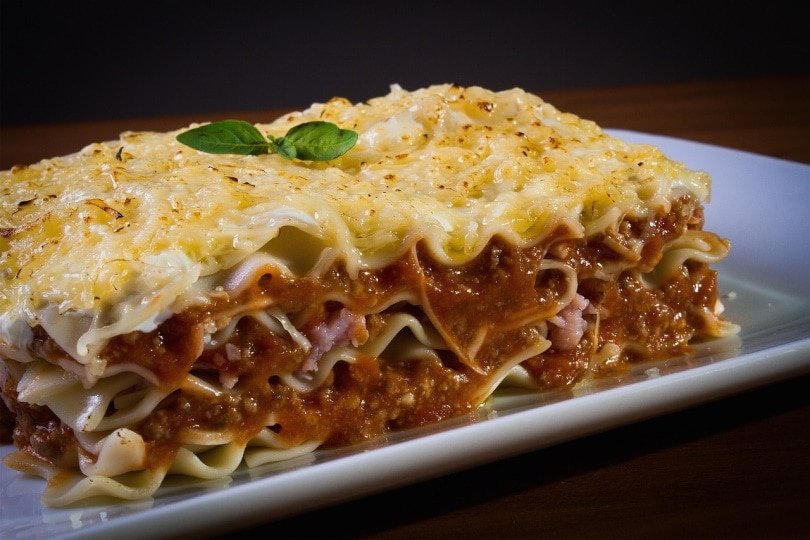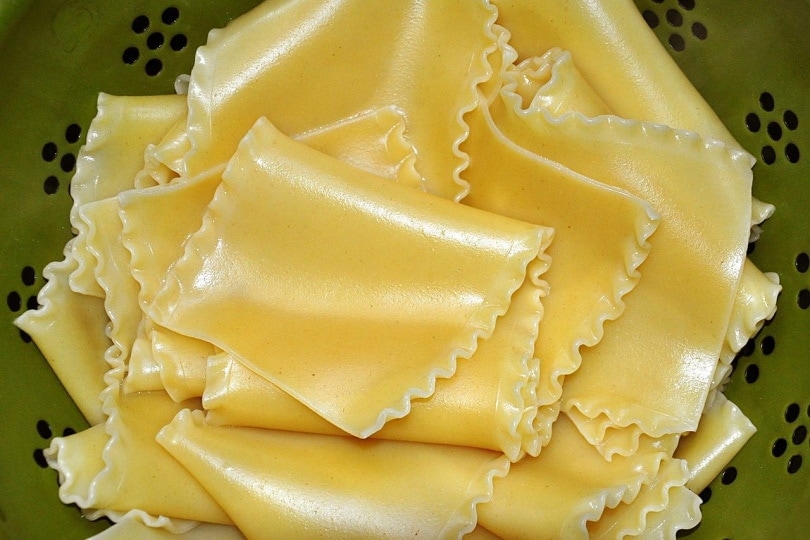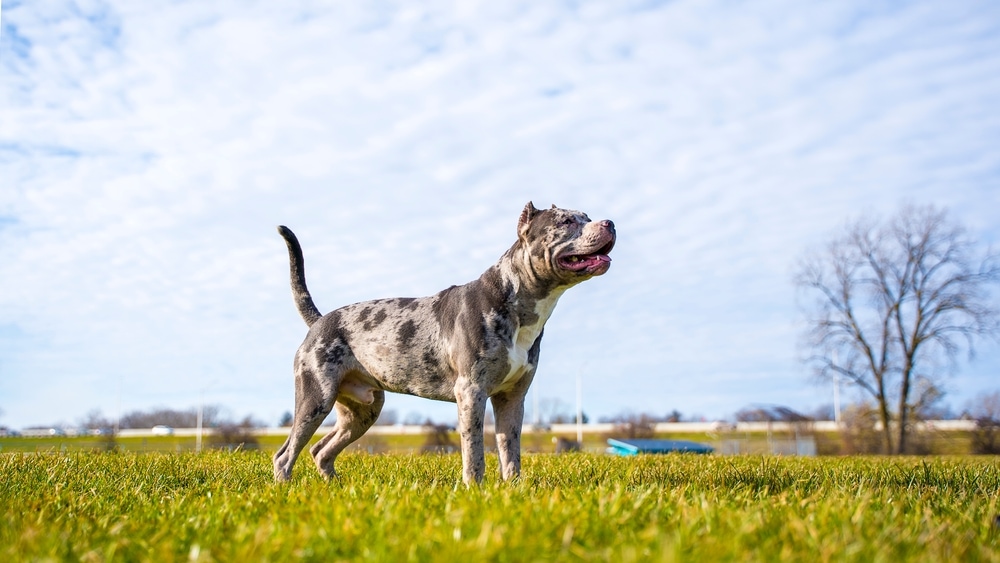Can Dogs Eat Lasagna? Vet-Approved Nutritional Facts & FAQ

Updated on

How does that old saying go—sharing is caring? When it comes to our dogs, sometimes the opposite is true, and sharing can be harmful. So, what about lasagna? Can we share it with our dogs? Unfortunately, the simple answer is no. Lasagna falls into the category of not only unhealthy for your dog, but some of the ingredients are also toxic. But let’s take a closer look at why this tasty Italian dish should stay off your dog’s menu.
What Is Lasagna?
Lasagna is a baked Italian pasta consisting of multiple layers of flat pasta sheets, cheese, beef or pork, seasonings, and a ragu or marinara sauce. The sauce is often made with onions, garlic, tomato sauce, and Italian seasonings. While there are numerous versions of the pasta, including vegetarian and chicken lasagna, the typical version has ricotta cheese, al dente pasta, mozzarella, parmesan, and meat sauce.

Is Lasagna Healthy for Dogs?
Unfortunately, no. Lasagna isn’t all that healthy for humans, and it shouldn’t come as a surprise that it isn’t suitable for our dogs either. While most of the ingredients that make up lasagna are not poisonous to a healthy dog, there are some exceptions, like onions and garlic, which can be toxic if eaten in large quantities.
Dogs can eat tomatoes; however, you must ensure they’re ripe because unripe tomatoes contain the chemical tomatine, which can be toxic to dogs. Although dogs can eat ripe tomatoes, it doesn’t mean the tomato sauce in lasagna is a healthy option. Canned tomatoes can contain additives that can harm your dog. They may also have added salt, sugar, onions, and garlic.
How Lasagna Is Unhealthy for Your Dog
Many dogs are lactose intolerant, which means the cheese sauce in lasagna would give them upset stomachs. Dogs that eat meals as rich and fatty as lasagna are also at risk of pancreatitis, which is an inflammatory reaction within the pancreas where an early, inappropriate activation of an enzyme causes the pancreas to essentially digest itself.
This results in abdominal pain, inappetence, and vomiting. These signs usually occur shortly after eating fatty foods, and mild cases can generally be treated with medication from your veterinarian, while more serious cases will require hospitalization. In the most severe cases, pancreatitis is fatal.
Lasagna is high in fats from the dairy, meat, and cooking oil, and the ready-made versions can be even higher in added fat. While the occasional nibble might not cause your dog much trouble, lasagna is not an appropriate treat or meal for a canine.
Top 3 Factors That Can Affect Toxicity
Apart from the ingredients in lasagna, other factors can affect how hazardous it is for your pet.
1. Breed of the Dog
Some breeds are more sensitive to the adverse effects of consuming garlic and onion. Japanese breeds like Akita Inu or Shiba Inu are highly vulnerable to the toxic effects of garlic and onions, so smaller amounts could be a big issue if you don’t get your dog to the vet promptly.
2. Size of the Dog
The size and age of your dog will play a significant role in whether or not your dog is prone to any toxicity. A single bite might not be harmful to an adult, but this might not be the case for a puppy that is 3 months old. The same goes for the size of the dog; a small bite for a Great Dane is much larger for a Chihuahua.

3. Underlying Gastrointestinal Issues
Adverse reactions from lasagna can be much worse for a dog that already suffers from intestinal ailments like lactose intolerance, pancreatitis, or protein allergies.
In Conclusion
Lasagna is not the best meal to share with your furry friend. Not only is lasagna rich and fatty, but it can also actually be toxic thanks to ingredients like garlic and onion. Contact your veterinary clinic if you have any concerns about the health of your dog. Feeding your dog lasagna will not benefit them, and there are healthier, tastier treats you can give your dog instead!
Featured Image Credit: angelorosa, Pixabay














